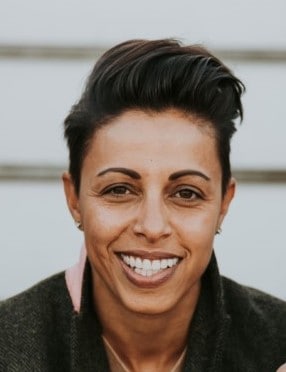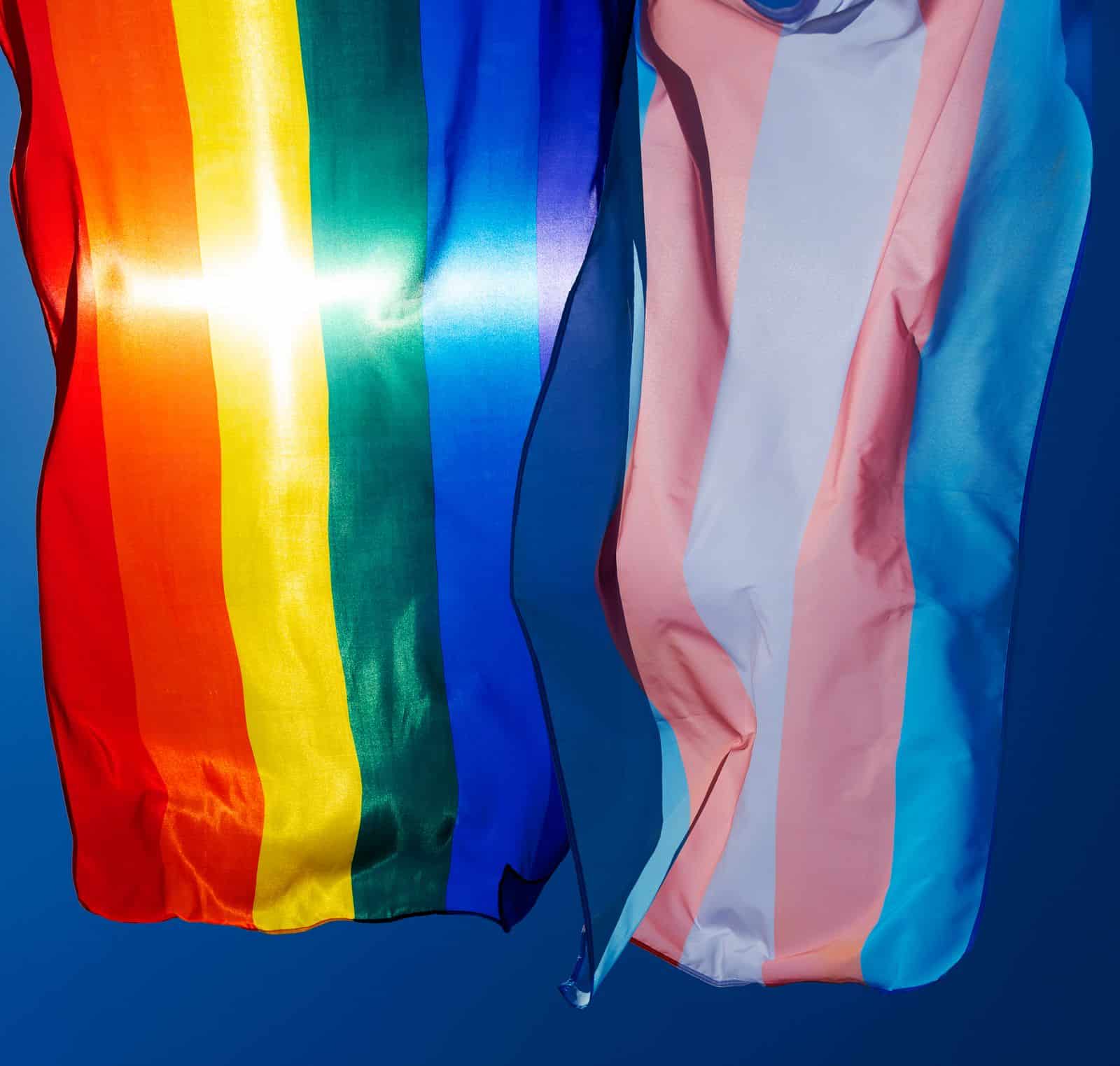“Diversity” and “inclusion” are big buzz words in the corporate world right now. In the wake of the Black Lives Matter protest in the summer of 2020, and the current reckoning in the craft beer industry around systemic sexism, racism, and homophobia, nearly every brand has put out a statement about its commitment to enact lasting positive change. As consumers, how do we know when these are just performative platitudes, or when the company in question is truly striving to address problems inside and outside of its organization? And, within the cider industry, how can we authentically address these questions and work towards real multifaceted progress without tokenizing underrepresented groups?
Angry Orchard and its parent company, Boston Beer Co., are facing these questions head-on. As you may remember, in 2019, Angry Orchard was embroiled in controversy after being accused of racially profiling a Black couple shopping in its gift shop. About five months before that, in March 2019, Boston Beer Co. developed an Action Learning Project focused on Diversity and Inclusion, which then led to a Task Force, and then a series of committees focused on Diversity & Inclusion, building allyship, recruiting and fostering inclusivity within Boston Beer Co’s brands. That all might sound like corporate-speak for lots of bureaucratic dealings, but there have been some meaningful changes made within the company. For example, as a continuing part of this effort, in October 2020, the Carissa Sweigart was hired as Boston Beer Co.’s full-time Diversity, Equity and Inclusion Leader. Sweigart’s role is a long-term commitment from the brand and part of an active strategy to build a more inclusive culture in the company.

Carissa Sweigart
We were able to engage in a conversation with Sweigart about the efforts Angry Orchard is taking, what’s changed in the company and what steps independent cideries with small teams can take to address diversity in their corners of the cidersphere.
Cider Culture: Can you tell us about the genesis of the Diversity, Equity and Inclusion position at Angry Orchard/Boston Beer Co.? Why did it get started and what are its stated goals?
Carissa Sweigart: I started in this position in October of 2020. In 2019, we developed a task force, because we recognized that society is changing and the industry is changing, and we wanted to make sure that we’re moving along with that. Seven co-workers from across our company came together to focus on providing a workplace that’s as supportive as possible, and then within that task force, it grew organically. We were reaching out to our brewers and cidermakers and to those on our hospitality side, and it grew to the point where this full-time role was created to collaborate with the various teams and put together and drive a sustainable strategy. I’ve been at Boston Beer for 16 years, I’ve had roles in sale and marketing, and I was fortunate enough that they looked at me to me fulfill this new role.
Our values include creating an inclusive organization, and we’re focused on living our values. This isn’t new to us, but what we’re really focused on right now is driving consistent, meaningful allyship and sustainable change, across Angry Orchard and all of Boston Beer.
What drew you to the Diversity, Equity and Inclusion position?
For me, it is about passion and purpose. I am a member of the LGBTQ+ community, I am a woman and I am multi-racial. Every day for the last 16 years I have had the pleasure of being in this amazing industry. I have been successful in the industry, but at the same time I have seen the continued need for change within it. I also recognize more than ever the privileges I have, and want to help change the narrative of who can be in this space and ensure that everyone has equal opportunity to succeed. We know there are ever-evolving drinkers of our Angry Orchard brand, and all of our Boston Beer brands and we need to celebrate and support that. I have had so many roles within Boston Beer, but this is the most special as it allows me to work with our coworkers, our leadership and external partners to make lasting change. I am here to help support the voices of our coworkers and ensure they have safe spaces to be their authentic selves.
What are some of the day-to-day things Angry Orchard is doing to address Diversity, Equity and Inclusion? What about bigger-picture things?
This work doesn’t happen overnight, we recognize that. We recognize being intentional in this work. We want this to encompass everything we do, from the production floor to the experiences for our guests, we’re looking at everything from the lens of inclusivity and ensuring that we have authentic representation. We’re also making sure that our coworkers have what they need, from benefits to clear reporting of any problems.
We’re really focused on understanding our composition as an organization. I’m working closely with our People and Culture and Talent Acquisition teams to make sure we have the resources in place to bring in diverse talent. We’re going beyond traditional recruiting practices; we want to think outside the box of how we get talent to look at our brands. If we have a workplace that’s inclusive and diverse, and those brands are making a difference, and drinkers are grasping and gravitating to what we’re doing, we’ll be an industry leader.
Can you expand on how you’re “thinking outside the box” to recruit diverse talent?
It’s pulling multiple levers. First, we looked internally at the competencies of our recruiters, and put them through workshops to uncover biases and microaggressions. We brought in a new Director of Talent Acquisition who has over 20 years of experience. She has developed relationships with historically Black colleges, and is looking outside of the industry at places, like unemployment agencies and job fairs, that may not be specific to beverage, but might have candidates that could relate and translate to the work we do here at AO.
This whole year has been about processing, finding our baseline, looking at things like our job descriptions and asking, “Is this inclusive?” We looked at hurdles to employment … even traditional avenues, like LinkedIn or Careers.com, a lot of people don’t have access to these things. So we’ve been finding ways to post our jobs on various job boards, finding different ways to get the jobs out there. We also ventured in a partnership with Diversity Jobs, and this was another way to broaden our net to include Veterans, the LGBT+ community and working families.
It’s not just like “let’s just get diversity in here.” Companies have done that, and they’re not successful. You keep talent by having an inclusive environment, with policies and practices, and ways to engage with leadership.
Overall, how do you feel things are going since you started back in the fall?
We work every day, looking at both the industry and society. Right now, we’re constantly identifying opportunities, looking at the safety of our coworkers, ensuring that we have a good reporting system for everyone, and are reaching out to other cideries and breweries to find out what they’re going through. It’s been wonderful to see our culture dive into this allyship.
Earlier this year, we developed a new platform of engaging with our coworkers called Courageous Conversations. It’s a bi-weekly meeting, and they can come ready with any subject or topic to have an open, active discussion with leadership. It’s been overwhelming to see the response to it. We also launched a new Employee Resource Group platform, focused on observances, like Black History Month and Women’s Month, to help get resources out to our network. Developed by our coworker networking groups, it gives them an opportunity to learn more about different communities and cultures so they can become better allies.
I’d like to see more collaborations between cideries, creative associations and wholesalers. We have to create more action and less words, harnessing creativity and resources to make lasting changes.
What do you think smaller cideries can borrow from Angry Orchard’s strategy, even if they aren’t able to dedicate a whole position to diversity and inclusion?
We’re learning as we go. I attribute our success so far just to our coworkers. But a point of advice: Whether you’re an operation of 5, 250 or 3,000 people, it starts by having conversations with your team. What are you passionate about? What do you want us to focus on? How are you bringing your authentic selves to work every day? What can we do together to make our taprooms and our cideries more inclusive? Ask them. Go piece by piece, don’t try to solve everything all at once. That’s what we did, we asked them. Our program started from nine coworkers coming together and saying, Let’s challenge the status quo. Even if it’s just two people that develop a task force and are working on it for 15 minutes a day, they’re driving at something.
There’s also a big opportunity to collaborate with other cideries on these issues. Opportunities can turn into change.
For more information on Angry Orchard and Boston Beer Co.’s DEI efforts, check out its 2020 Annual Report; to see its job listings head here. We’d really love to spread this conversation far and wide. If you’re a cider fan, what efforts and outcomes do you hope to see within the culture? What messages resonate with you? And for cider pros, what do you want to see change and evolve within our industry? What topics are you and your coworkers talking about or addressing? Let us know in the comments, or reach out to us via email to share!
- Feature photo: BigStock
